Written with love, shared with joy.
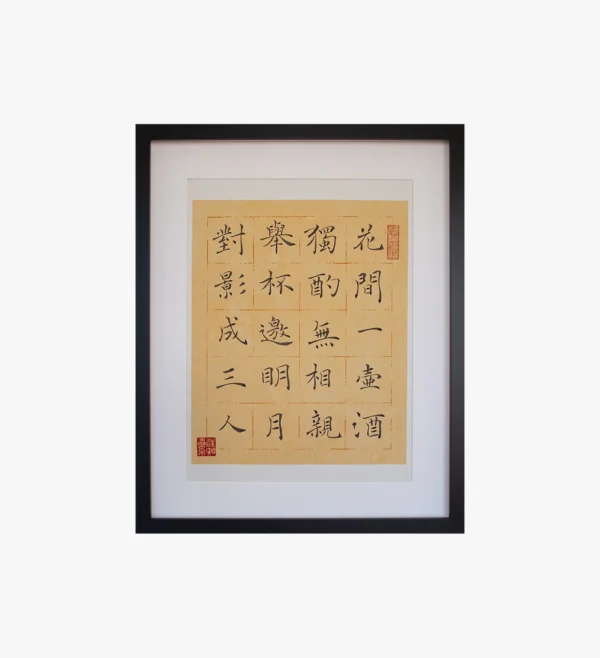
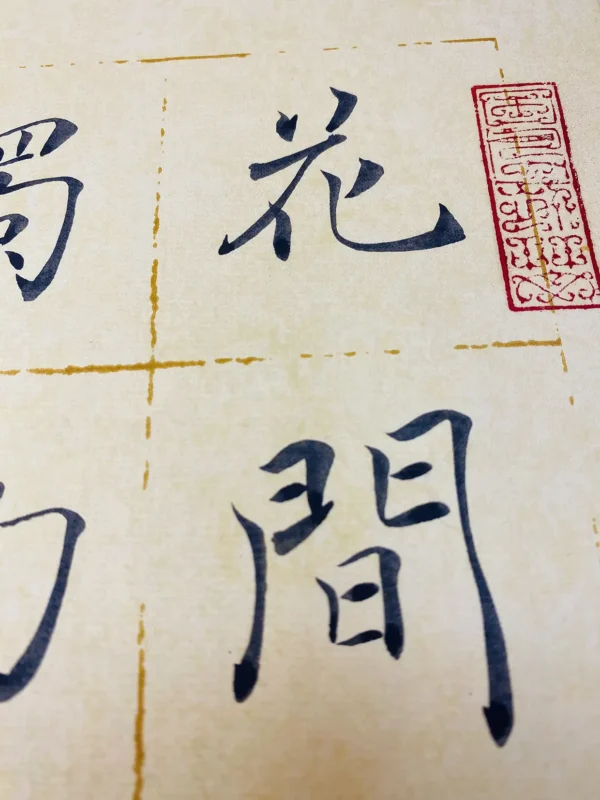
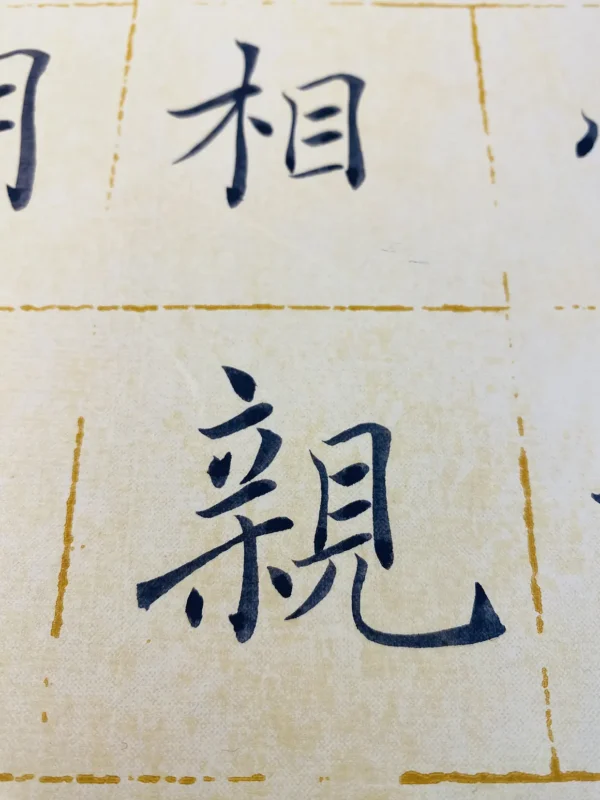
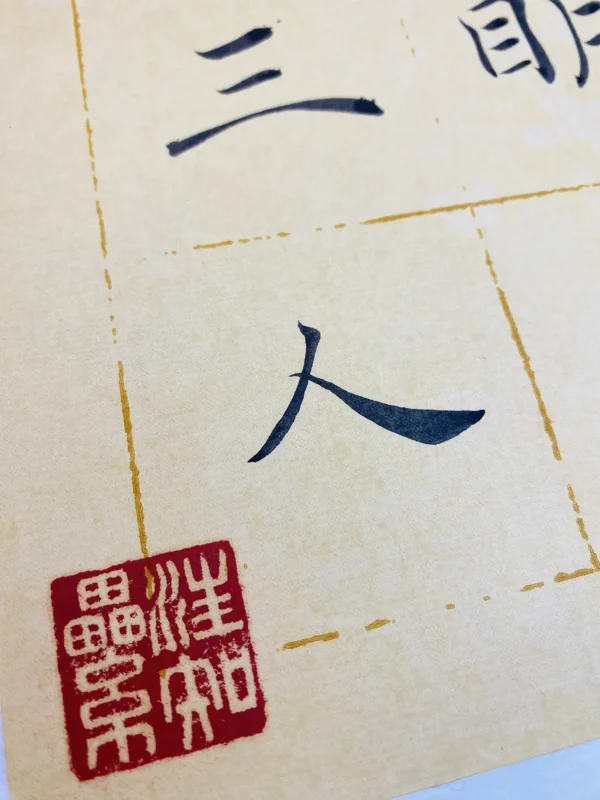
Handwritten Chinese Calligraphy Wall Hanging with Li Bai Solitude Poem
$220.00
Step into the poetic world of this captivating Chinese calligraphy wall hanging with solitude poem by Li Bai.
The graceful brushstrokes evoke the beauty of nature, the charm of companionship, and the melancholy of loneliness. Perfect for those who appreciate art and the timeless wisdom of Tang poetry.
- Materials: Handmade calligraphy on premium rice paper with an antique finish.
- Design: Soft yellow background with an antique tone complements the historical and cultural significance of the poem.
- Calligraphy: Features Li Bai’s poetic line, handwritten using traditional brush techniques.
- Seals: Stamped with the artist’s personal name seal and leisure seal for authenticity.
- Dimensions: 40 cm x 50 cm.
This wall-hanging artworks comes with the IKEA RÖDALM black frame by default. If you prefer a white frame, please specify your preference in the Order Notes section at checkout.
The Meaning and Origin of the Words
This exquisite Chinese calligraphy wall hanging with solitude poem by Li Bai features the first four lines of his celebrated poem, “Drinking Alone Under the Moon” (《月下独酌》), which are testament to Li Bai’s poetic genius and his ability to capture complex human emotions with simplicity and elegance. Through his vivid imagery and profound imagination, he transforms a solitary moment into a timeless reflection on the beauty of life, nature, and the human spirit—captured elegantly in this wall hanging with solitude poem that brings his words to life.
Original Poem Text:
“花間一壺酒,獨酌無相親。”
“舉杯邀明月,對影成三人。”
Translation:
“Amidst the flowers, a pot of wine, I drink alone with no one near.
Raising my cup, I invite the moon; with my shadow, we become three.”
The poem begins with a striking image of the poet sitting alone among blooming flowers, accompanied only by a pot of wine. The vibrant natural setting contrasts with the starkness of his solitude, creating a poignant tension. Li Bai’s decision to drink alone highlights his isolation, yet it also sets the stage for the transformative act of imagination that follows.
Faced with loneliness, Li Bai turns to the moon and his shadow as his companions. By inviting the moon to drink and noticing the presence of his shadow, he creates a sense of connection and camaraderie. This act of personification reflects Li Bai’s unique ability to transcend the boundaries of reality and form relationships with elements of nature. The moon, a symbol of constancy and beauty in Chinese culture, and the shadow, a metaphor for the self, become metaphysical companions, bridging the gap between the poet’s inner world and the external universe.
On one level, the poem conveys the deep loneliness that often accompanies a life of introspection and artistic pursuit. Yet, Li Bai does not wallow in this solitude. Instead, he transforms it into a celebration of imagination and human resilience. The act of “drinking with the moon and shadow” suggests that even in isolation, one can find joy and meaning. The poem becomes a meditation on the creative spirit’s ability to find beauty and companionship in unexpected places.
Li Bai’s poetry is deeply rooted in Daoist philosophy, which emphasizes harmony with nature and the pursuit of spiritual freedom. In this poem, his connection to the moon and shadow reflects a Daoist perspective of interconnectedness, where the self is not isolated but part of a larger cosmic order. The moon, a recurring symbol in Chinese literature, often represents unattainable ideals, fleeting beauty, and the passage of time. Here, it serves as both a silent witness to the poet’s musings and a timeless companion, bridging the earthly and the celestial.
Although written over a thousand years ago, “Drinking Alone Under the Moon” resonates with contemporary audiences. In a world that often emphasizes productivity and social engagement, Li Bai’s willingness to embrace solitude and find joy in his own company serves as a powerful reminder of the value of introspection and self-discovery. His imaginative approach to life encourages us to see the extraordinary in the ordinary and to find connections beyond the limitations of reality.
About the Poet
Li Bai (701–762 CE) was a Chinese poet acclaimed as one of the greatest and most important poets of the Tang dynasty and in Chinese history as a whole. He and his friend Du Fu (712–770 CE) were two of the most prominent figures in the flourishing of Chinese poetry under the Tang dynasty, which is often called the “Golden Age of Chinese Poetry”. Often called the “Immortal Poet,” Li Bai’s works reflect his deep appreciation for nature, his pursuit of personal freedom, and his philosophical musings on life and death.
Why Choose This Wall Hanging with Solitude Poem?
This calligraphy piece invites us to not only admire the artistry of Li Bai’s words but also to reflect on our own experiences of solitude and connection. It’s a reminder that even in our loneliest moments, we are never truly alone, as the universe offers companions in its timeless elements—if we only pause to notice them.
Celebrate the timeless beauty of Chinese poetry and calligraphy with this unique artwork, where ancient wisdom meets artistic expression!
Only logged in customers who have purchased this product may leave a review.


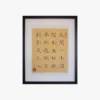
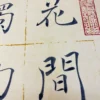
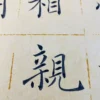
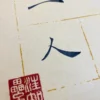
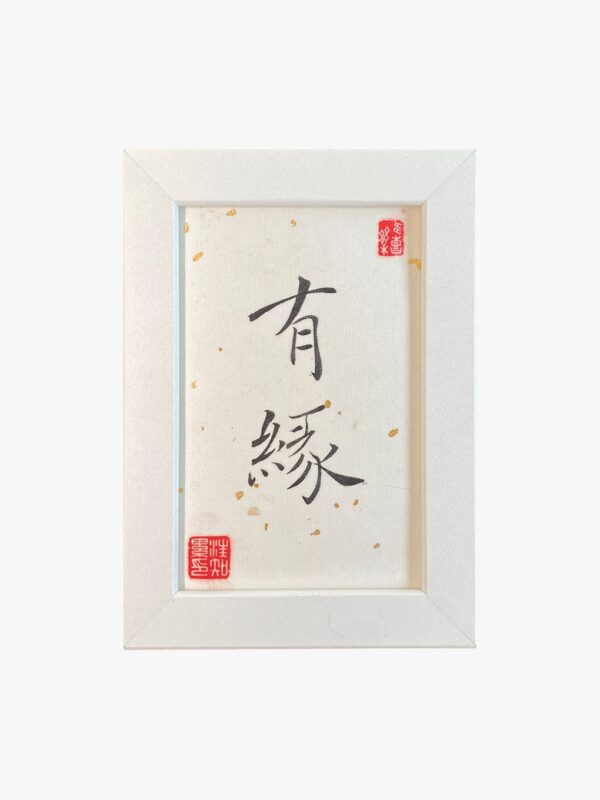
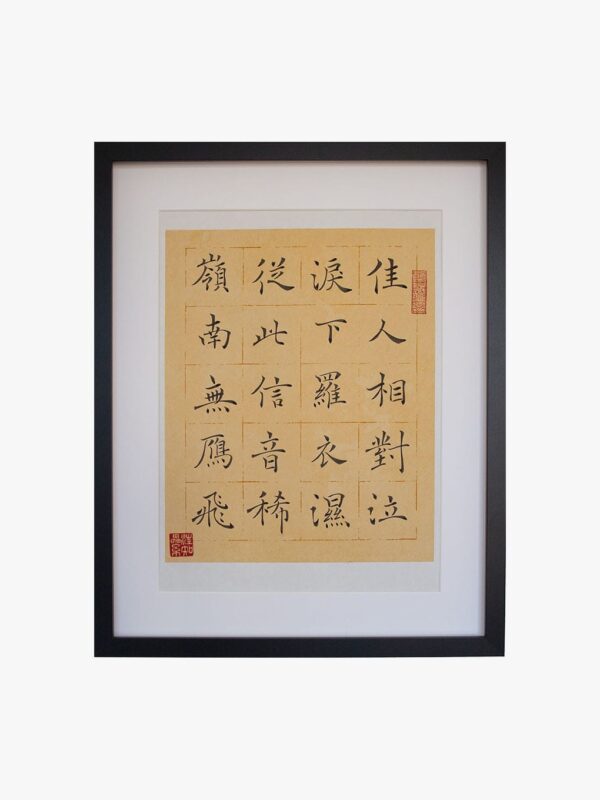
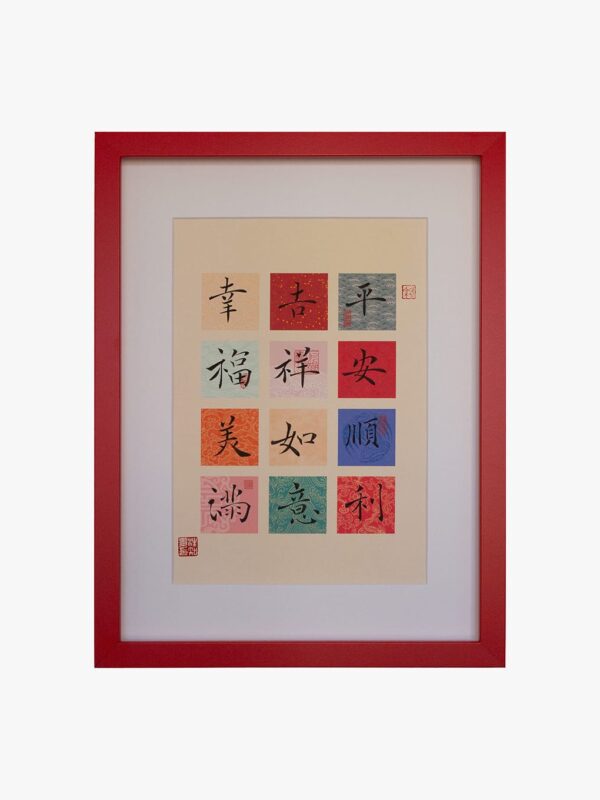
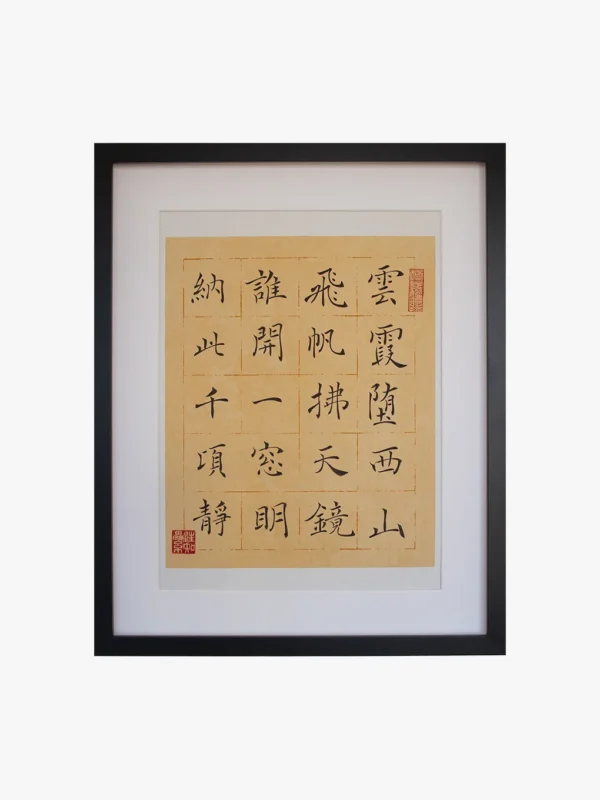
Reviews
There are no reviews yet.